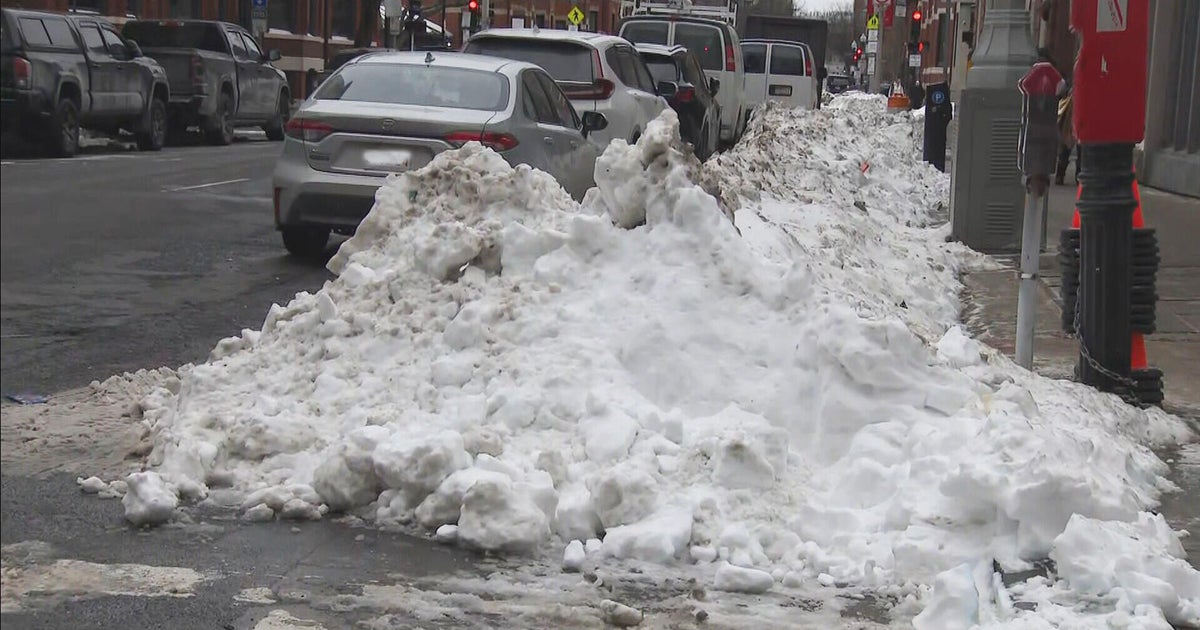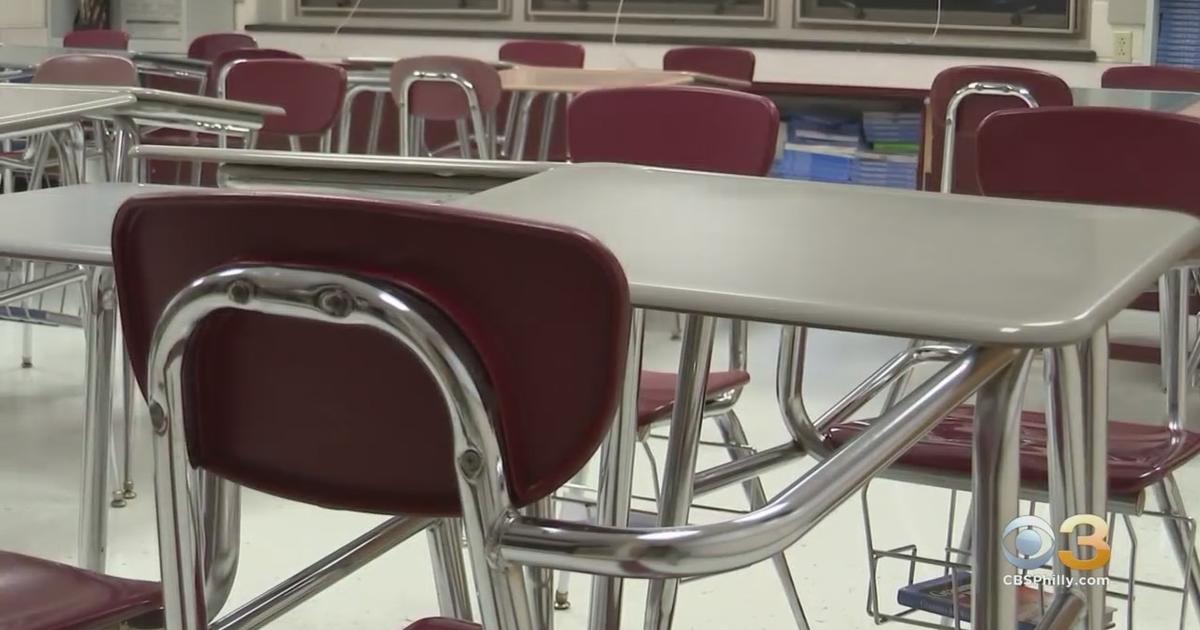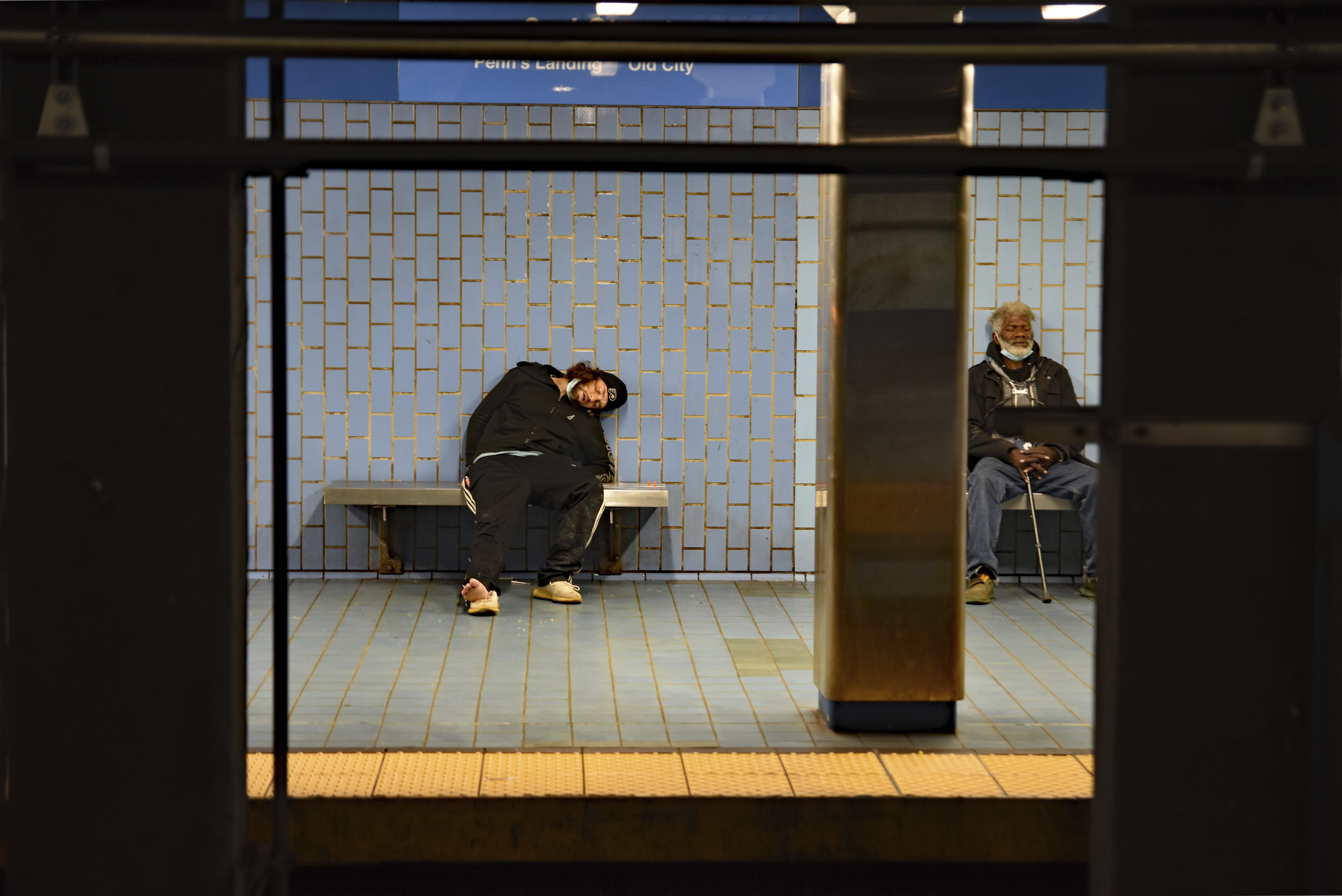J&J and other opioid players to pay $26 billion to states over roles in addiction crisis
Drugmaker Johnson & Johnson and three major distributors finalized nationwide settlements over their roles in the opioid addiction crisis Friday, an announcement that clears the way for $26 billion to flow to nearly every state in the U.S.
Taken together, the settlements are the largest to date among the many opioid-related cases that have been playing out across the country. They're expected to provide a significant boost to efforts aimed at reversing the crisis in places that have been devastated by it, including many parts of rural America.
Johnson & Johnson, AmerisourceBergen, Cardinal Health and McKesson announced the settlement plan last year, but the deal was contingent on getting participation from a critical mass of state and local governments.
Friday was the deadline for the companies to announce whether they felt enough state and local governments had committed to participate in the settlement and relinquish the right to sue. The four companies notified lawyers for the governments in the case that their thresholds were met, but did not specify an exact number. The money could start flowing to thousands of counties and municipalities as well as states by April.
"We're never going to have enough money to immediately cure this problem," said Joe Rice, one of the lead lawyers who represented local governments in the litigation that led to the settlement. "What we're trying to do is give a lot of small communities a chance to try to change some of their problems."
No direct settlement money to victims
While none of the settlement money will go directly to victims of opioid addiction or their survivors, the vast majority of it is required to be used to deal with the epidemic. The need for local government funding of addiction and health education programs runs deep.
Kathleen Noonan, CEO of the Camden Coalition of Healthcare Providers in Camden, N.J., said a portion of the settlement money should be used to provide housing to people with addictions who are homeless.
"We have clients who have a hard time staying clean to make it in a shelter," she said. "We would like to stabilize them so we can help them recover."
Dan Keashen, a spokesman for Camden County government, said officials are thinking about using settlement money for a public education campaign to warn about the dangers of fentanyl. They also want to send more drug counselors into the streets, put additional social workers in municipal courts and pay for anti-addiction medications in the county jail.
Officials across the country are considering pumping the money into similar priorities.
California Governor Gavin Newsom's proposed budget calls for using $50 million of the state's expected $86 million share this year to fund youth opioid education and to train treatment providers, improve data collection and distribute naloxone, a drug that reverses overdoses.
In Florida's Broward County, home to Fort Lauderdale, the number of beds in a county-run detoxification facility could be expanded to 70 or 75 from the current 50, said Danielle Wang French, a lawyer for the county.
"It's not enough, but it's a good start," she said of the settlement.
Local governments urged to "strategize"
With fatal overdoses continuing to rage across the U.S., largely because of the spread of fentanyl and other illicitly produced synthetic opioids, public health experts are urging governments to use the money to ensure access to drug treatment for people with addictions. They also emphasize the need to fund programs that are proven to work, collect data on their efforts and launch prevention efforts aimed at young people, all while focusing on racial equity.
"It shouldn't be: ready, set, spend," said Joshua Sharfstein, a former secretary of the Maryland Department of Health who is now a vice dean of public health at Johns Hopkins University. "It should be: think, strategize, spend."
In a separate deal that also is included in the $26 billion, the four companies reached a $590 million settlement with the nation's federally recognized Native American tribes. About $2 billion is being set aside for fees and expenses for the lawyers who have spent years working on the case.
New Brunswick, New Jersey-based Johnson & Johnson has nine years to pay its $5 billion share. The distributors — Conshohocken, Pennsylvania-based AmerisourceBergen; Columbus, Ohio-based Cardinal Health; and Irving, Texas-based McKesson — agreed to pay their combined $21 billion over 18 years. To reach the maximum amounts, states have to get local governments to sign on.
J&J will not resume selling opioids
The settlements go beyond money. J&J, which has stopped selling prescription opioids, agrees not to resume. The distributors agree to send data to a clearinghouse intended to help flag when prescription drugs are diverted to the black market.
The companies are not admitting wrongdoing and are continuing to defend themselves against claims they helped cause the opioid crisis that were brought by entities that are not involved in the settlements.
The requirement that most of the money be used to address the opioid crisis contrasts with a series of public health settlements in the 1990s with tobacco companies. In those cases, states used big chunks of the settlement money to fill budget gaps and fund other priorities.
The amount sent to each state under the opioid settlement depends on a formula that takes into account the severity of the crisis and the population. County and local governments also get shares of the money. A handful of states — Alabama, New Hampshire, Oklahoma, Washington and West Virginia — have not joined all or part of the settlement, mostly because they have their own deals or are preparing for trial.
In Camden, Lisa Davey, a recovery specialist for Maryville Addiction Treatment Center, was at a needle exchange this week handing out naloxone, a drug that reverses overdoses, and asking people if they wanted to start treatment.
Davey said she wants to see detoxification and treatment programs receive more funding to keep people in them for longer. As it is, she said, users can detox and be back out on the streets in search of drugs within days.
"They need more time to work their recovery," she said.
Rise of synthetic opioids
A man picking up clean needles who asked to be identified only as Anthony P. said he was 46 and had struggled with addiction since he was a teenager. He said he'd like to see an effort to cut off fentanyl and related synthetic opioids that are driving overdose death rates from the drug supply.
"Fentanyl's got to go," he said.
Martha Chavis, president and CEO of Camden Area Health Education Center, which runs the needle exchange, said one need is offering services like hers in more places. Now, users from far-flung suburbs travel into Camden to get clean needles and kits to test their drugs for fentanyl.
In Connecticut, some 100 bags of fentanyl were found in the bedroom of a 13-year-old boy who overdosed and died in January, according to Hartford police. An investigation into how the teenager came into possession of the powerful opioid is currently underway.
The settlement with J&J and the three distributors marks a major step toward resolving the vast constellation of lawsuits in the U.S. over liability for an epidemic that has been linked to the deaths of more than 500,000 Americans over the past two decades.
Other companies, including business consultant McKinsey and drugmakers Endo, Mallinckrodt and Teva, have reached national settlements or a series of local ones.
Teva Pharmaceutical Industries in February reached a $225 million settlement in an opioid case in Texas over claims the Isreal-based drugmaker improperly marketed addictive pain medications, Reuters reported. The settlement came after a landmark case in New York in December, in which a jury found Teva responsible for contributing to the state's opioid crisis.
Teva told CBS News at the time that it was preparing an appeal and asking for a mistrial, claiming the plaintiffs presented "no causal relationship between Teva's conduct, including its marketing, and any harm to the public in the state."
OxyContin maker Purdue Pharma and a group of states are in mediation through U.S. Bankruptcy Court to try to reach a nationwide settlement. A judge in December rejected a bankruptcy settlement by Purdue Pharma because of a provision that would have protected members of the company's founding Sackler family from facing litigation of their own.
Pandemic's impact
The crisis has deepened during the coronavirus pandemic, with U.S. opioid-related deaths reaching a high of more than 76,000 in the 12 months that ended in April 2021, largely because of the spread of fentanyl and other lab-made drugs. A recent report from a commission by The Lancet medical journal projected that 1.2 million Americans could die of opioid overdoses between 2020 and 2029 without policy changes.
John F. Kelly, a professor of psychiatry in addiction medicine at Harvard Medical School, said he wants to see money from the settlements go not just for treatment, recovery and support efforts but also to build systems designed to prevent this sort of epidemic from happening again.
"Some kind of national board or organization could be set up ... to prevent this kind of lack of oversight from happening again — where industry is allowed to create a public health hazard," he said.



